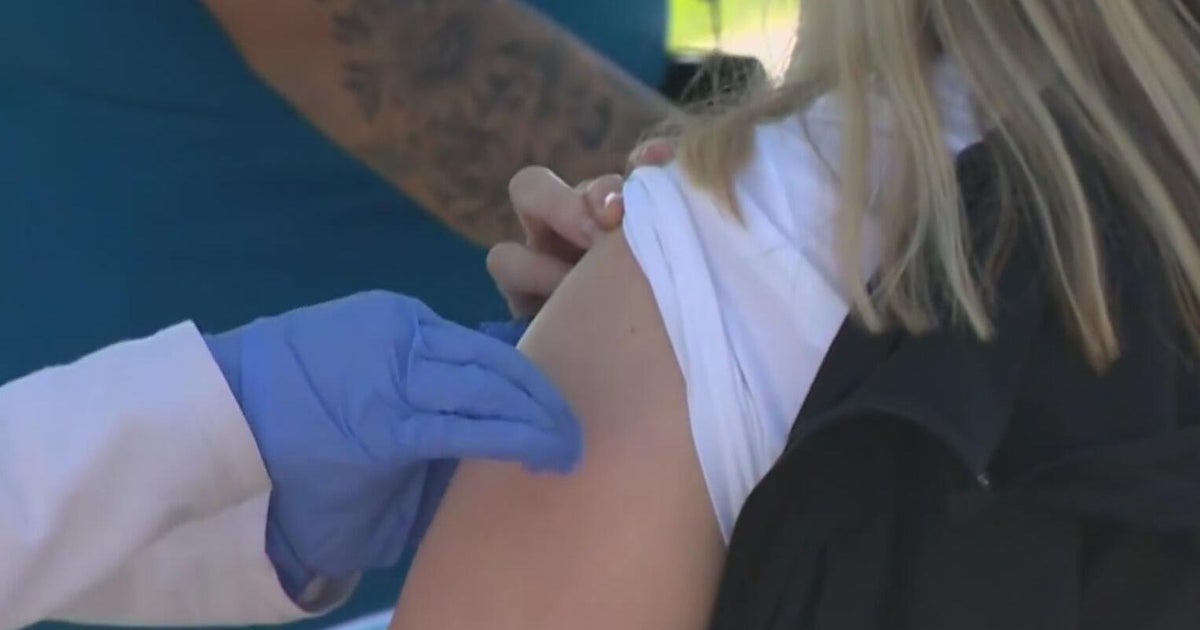Drug overdose deaths skyrocket among middle-aged women
America's drug crisis is taking a deadly toll on a group you might not expect: middle-aged women. A new report from the Centers for Disease Control and Prevention reveals that drug overdose deaths among females aged 30 to 64 have skyrocketed in recent years.
According to the report, from 1999 to 2017, the drug overdose death rate in this age group more than tripled. The rate rose 260 percent, from 6.7 deaths per 100,000 people (4,314 overdose deaths total) to 24.3 per 100,000 (18,110 deaths).
"Specific groups of Americans are exquisitely vulnerable to the catastrophic consequences of the opioid epidemic," Dr. Harshal D. Kirane, director of addiction services at Staten Island University Hospital in New York, told CBS News. "Sadly, we are continuing to identify new groups to add to the list."
Kirane, who was not involved with the CDC study, called the findings "very concerning," especially since middle-aged women typically encounter significant barriers to addiction treatment due to family and child-care responsibilities and financial disparities.
The study, published in the CDC's Morbidity and Mortality Weekly Report, also looked at the types of drugs involved in the overdoses and found huge increases in deaths involving synthetic opioids (such as fentanyl), heroin, and benzodiazepines, a class of drugs primarily used for treating anxiety.
Dr. Robert Glatter, an emergency physician at Lenox Hill Hospital in New York City, said the report sounds the alarm not only for middle-aged women being at significantly higher risk for death from drug overdose but also the "meteoric rise of synthetic opioids, along with heroin and benzodiazepines accounting for the increased death rate."
"While prescription opioids are still the main driver of the current opioid epidemic, it's important to acknowledge the sharp rise of fentanyl-laced heroin for the increased numbers of deaths, driven by cheap, illicitly manufactured fentanyl from China and Southeast Asia making its way onto the streets in the U.S.," he told CBS News. Glatter was not involved in the CDC report.
This CDC report does not provide information on drug overdose deaths for men of the same age group, but Kirane said, "overall, men are demonstrating similar increases in drug overdose deaths."
Glatter notes that while men have higher rates of use or dependence on illicit drugs and alcohol compared with women, data also indicates that women are just as likely as men to develop a substance use disorder. And there are plenty reasons why women are particularly vulnerable to drug overdose.
"Data indicates that women run a higher risk of drug craving and relapse, which are important stages in the addiction cycle," Glatter said. "Sex hormones may also make women more sensitive to the effects of particular drugs, opiates and benzodiazepines, for example, compared to men."
Women's substance use also tends to progress more rapidly from first-time use until addiction develops, and withdrawal can be more intense for women, Glatter said.
Additional risk factors may also be playing a role.
"Persons with untreated or under-treated depression or anxiety are at higher risk for substance abuse, placing middle-aged women in this demographic at higher risk for opiate as well as benzodiazepine abuse," Glatter noted. "Women who are victims of domestic violence are also at higher risk of substance abuse."
For the study, researchers used a national database based on information from all death certificates filed in the 50 states and the District of Columbia.
The report concludes that overdose deaths continue to be "unacceptably high" and more targeted efforts are needed "to reduce the number of deaths in this evolving epidemic of middle-aged women."
Both Glatter and Kirane say this starts with increased access to addiction care.
"Most crucially, only 1 in 10 Americans that could benefit from addiction treatment currently access it," Kirane said. "We must expand the entire infrastructure for addiction care in our country, and address the comprehensive needs for women struggling with opioid-related issues. Key elements of this infrastructure include access to medication-assisted treatment, overdose education and naloxone distribution."




